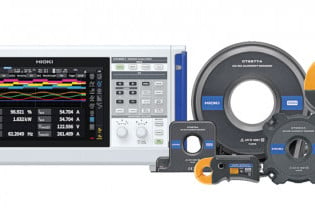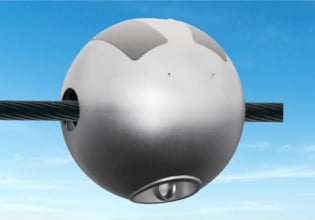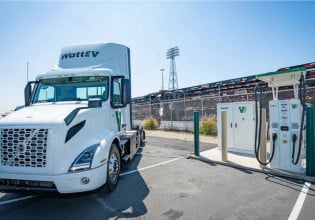The Fraunhofer Institute for Silicate Research ISC and Hydro-Québec are teaming up to conduct research and development into next-generation lithium-ion and lithium-air battery materials to be used in transportation electrification. The partnership will focus on inorganic solid electrolytes, especially glass-ceramic electrolytes. In addition to having excellent ionic conductivity, these materials are highly advantageous in terms of safety, thanks to their non-flammable nature.
"In joining forces with Hydro-Québec, we are increasing the pace in developing a next-generation solid-state battery with doubled energy density. The impact of this new technology could be enormous—especially for electric mobility applications," commented Dr. Alfred Gossner, Stellenbosch University professor and Executive Vice President of the Fraunhofer-Gesellschaft, on the occasion of the joint signature of the Memorandum of Understanding in Munich during Québec's official visit to Bavaria, Germany.
Dr. Gerhard Sextl, professor and Director of Fraunhofer ISC, added the following: "Hydro-Québec is Québec's most important energy supplier and one of the biggest producers of hydroelectricity and other renewable energies in the world. Hydro-Québec is a very powerful partner in developing trendsetting technologies for the storage and use of clean energy in transportation."
"Fraunhofer is one of Europe's most prestigious research institutions, and Fraunhofer ISC in particular has an impressive track record in the field of battery materials," noted Karim Zaghib, Director – Energy Storage and Conservation at IREQ, Hydro-Québec's research institute. "Like Hydro-Québec, it invests in research projects that look to meet specific, concrete needs. We are confident in this partnership's potential to contribute to extending electric vehicle battery range."






